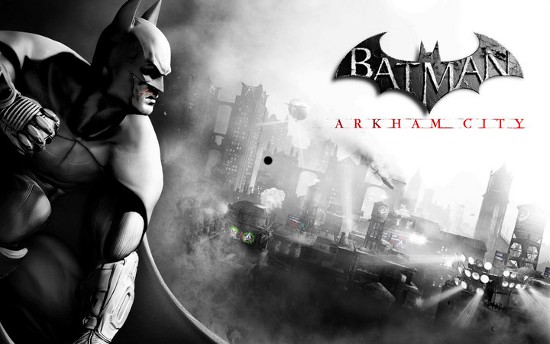Two years ago developer Rocksteady released its critically acclaimed breakout game Batman: Arkham Asylum, eschewing the typical cash-grab film tie-in for a meticulously constructed licensed game that owes more to the animated series and Batman’s comicbook roots. Its strength lay in its premise: placing Batman inside Gotham City’s asylum for the criminally insane allowed the team to roll out a rogue’s gallery of famous and lesser-known villains. The problem was that while Arkham Island was fully explorable, movement was constrained by the way in which it was broken up into contained areas.
I had concerns about the sequel‘s proposed open world approach, but again Rocksteady found the ideal conceit: a controversial response to crime has led to a section of Gotham City being closed off and all Arkham’s undesirables dumped inside. Batman can grapple, glide and swoop across large areas making traversal now as much fun as the brawling combat. Interludes as Catwoman intersperse proceedings (controversially requiring extra payment unless you buy the game new) providing a lithe new way to move and fight. Meanwhile a plethora of side-missions are available throughout, and after completing the main story. Its careful construction (traverse, explore, sneak, assess, fight, repeat, well-choreographed boss fight) means it never feels like anything but a game, yet it is one of the finest, most distilled gaming experiences of this generation.
Mark Hamill returns for his final outing as The Joker, having announced his retirement from the character which he has also voiced in countless animated productions. But what a high to go out on! Great as Heath Ledger’s performance may have been, The Joker is a role that Mark Hamill owns. Without spoiling the story itself, Arkham City‘s central plot focuses on my favourite aspect of the Batman mythos: not the rivalry between The Dark Knight and The Clown Prince of Crime but rather their co-dependence. While Batman donned his cowl in response to Gotham’s criminal element, Arkham City mastermind Hugo Strange reprimands Batman, arguing these criminals now exist because of him. Whilst there are other heroes and villains in Gotham, ultimately, bitterly fought as their battles may be, the lives of Batman and Joker would be emptier — almost meaningless — without one another. Approaching this in a videogame format marks another notch in the move towards conceptually mature narratives.





